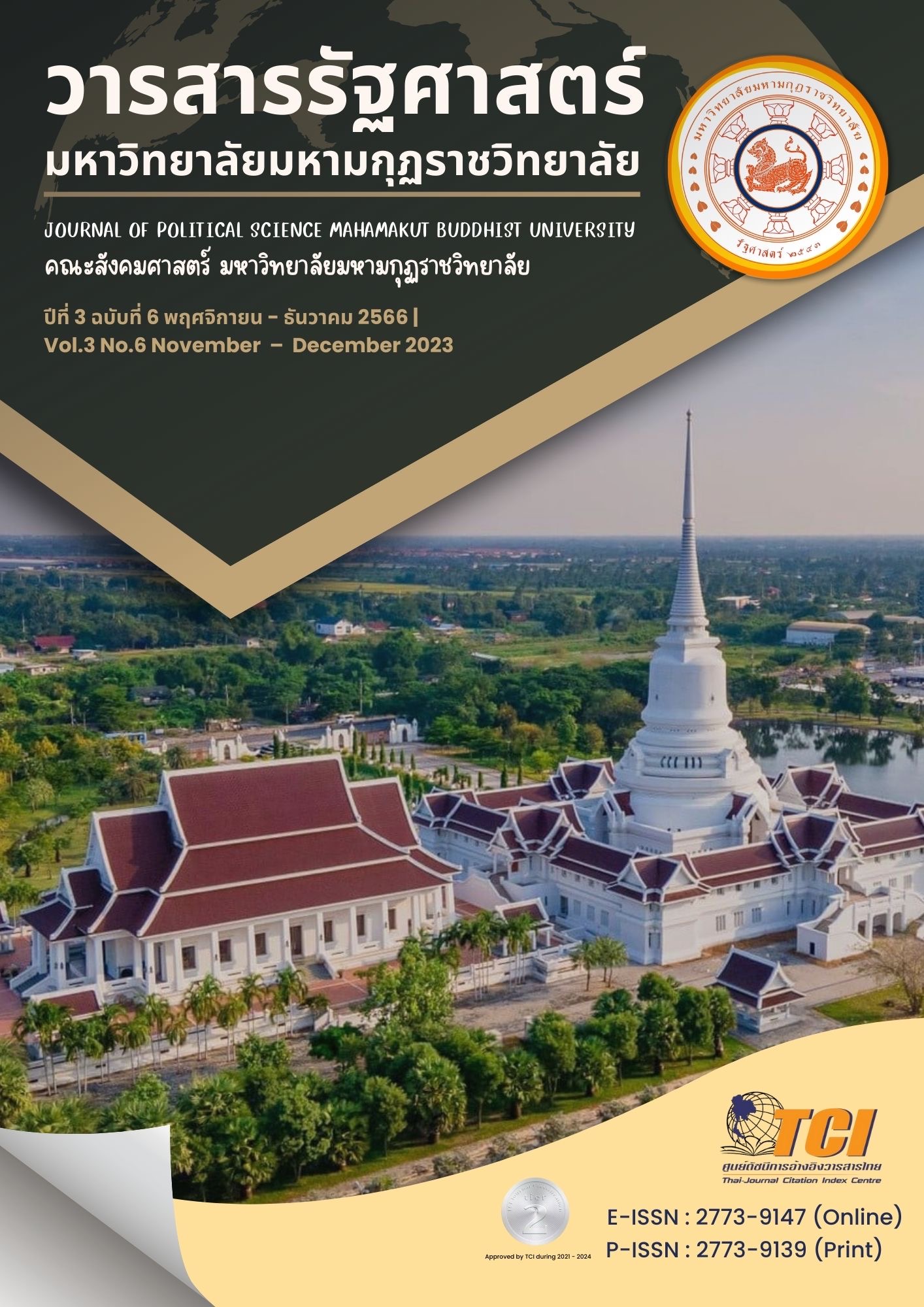AUTOPSY PROCESS IN THAI LAW THAT AFFECTS MUSLIM PRACTICES
Main Article Content
Abstract
This article examines the issue of the autopsy process, which is a process under the Criminal Procedure Act. The objective is to find evidence to prove the truth. Find the cause of death and bring the perpetrators to justice. This is a fundamental right that the state must step in to recognize and protect in cases where life is unfairly taken. However, there are limitations on autopsies for Muslim believers. They have practices regarding corpses that are against Thai law. Islam has strict rules regarding funeral arrangements, such as the funeral must be held immediately, the body must not be kept, and religious ceremonies and burial must be held within 24 hours of death. The funeral director must be of the same gender and of the same religion as the corpse. Muslims are of the opinion that performing an autopsy using a dissecting knife is like injuring and destroying the corpse. Therefore they did not agree to allow the corpse to be dissected. An autopsy is a forensic science process that produces evidence that is important in determining the truth. Muslims do not consent to an autopsy. This makes the work of officials in finding evidence to carry out the justice process difficult. Ultimately, striking a balance between the rights of individuals to practice their religion and the pursuit of justice is a complex task that requires careful consideration and understanding from all parties involved.
Article Details

This work is licensed under a Creative Commons Attribution-NonCommercial-NoDerivatives 4.0 International License.
References
จรัญ โฆษณานันท์. (2556). สิทธิมนุษยชนไร้พรมแดน ปรัชญา กฎหมายและความเป็นจริงทางสังคม. (พิมพ์ครั้งที่ 2). กรุงเทพมหานคร: นิติธรรม.
ธรรมนิติ. (2560). หลักกฎหมายเกี่ยวกับการชันสูตรพลิกศพแนวทางและข้อเท็จจริงที่ควรรู้. เรียกใช้เมื่อ 15 กันยายน 2566 จาก https://www.dharmniti.co.th/law-autopsy/.ประมวลกฎหมายวิธีพิจารณาความอาญา
เพ็ญจันทร์ ประดับมุข เชอร์เรอร์ และ อุบลพรรณ ธีระศิลป์. (2560). โลกทัศน์ของการตายดีของคนไทย: มุมมองทางสังคมวัฒนธรรม. วารสารคุณภาพชีวิตกับกฎหมาย, 13(2), 213.
มุสลิมไทยโพสต์. (2556). คําอ่านละหมาดญานาซะห์ สอนวิธีละหมาดญะนาซะห์ (ละหมาดคนตาย). เรียกใช้เมื่อ 15 กันยายน 2566 จาก https://islamhouse. muslimthaipost.com/article/22342.
วิธู พฤกษนันต์ และคณะ. (2554). ชันสูตรศพมุสลิม ประสบการณ์จากมาเลเซีย-สิงคโปร์. สงขลา: ชานเมืองการพิมพ์.
สุเมธ ปานเพชร. (2554) ผ่าชันสูตรศพตามหลักอิสลามนับหนึ่งความเป็นธรรม (อินเตอร์เน็ต). เรียกใช้เมื่อ 15 กันยายน 2566 จาก https://www.isranews.org/content-page/item/25 73-ผ่าชันสูตรศพตามหลักอิสลาม-นับหนึ่งความเป็นธรรม-พิสูจน์การตายผิดปกติที่ชายแดนใต้.html
สำนักจุฬาราชมนตรี. (2549). คำวินิจฉัยทางศาสนา(ฟัตวา)ที่ 04/2549 เรื่องการชันสูตรพลิกศพ.” สำนักจุฬาราชมนตรี (อินเตอร์เน็ต). เรียกใช้เมื่อ 15 กันยายน 2566 จากhttps://www.skthai.org/th/pages/6799.
หยุด แสงอุทัย. (2556). ความรู้เบื้องต้นเกี่ยวกับกฎหมายทั่วไป. พิมพ์ครั้งที่ 19. กรุงเทพมหานคร: มหาวิทยาลัยธรรมศาสตร์.
อะมีน บิน อับดุลลอฮฺ อัชชะกอวีย์, (2557). แปลโดย: อุศนา พ่วงศิริ. อัดดุร็อรฺ อัลมุนตะกอฮฺ มิน อัลกะลีมาตอัลมุลกอฮฺ. กรุงริยาด: สำนักงานเผยแพร่และสอนอิสลามอัร-ร็อบวะฮฺ.
อาดิบ อับดุลเลาะห์. (2566). คัมภีร์อัลกุรอ่าน คือหนทางแห่งชีวิต คือแนวทางแห่งความ สำเร็จ. เรียกใช้เมื่อ 15 กันยายน 2566 จากhttps://www.Islam more.com/view/1468.
AVANTI HEALTH & TECHNOLOGY. (2563). CT scan (Computerized Tomography) หรือเอกซเรย์คอมพิวเตอร์. เรียกใช้เมื่อ 15 กันยายน 2566 จากhttps://www.avantihnw.com/news/3/.
Brian Z. Tamanaha แปลโดย จรัญ โฆษณานันท์. (2563). ความรู้ความเข้าใจต่อพหุนิยมทางกฎหมาย (Legal Pluralisa) จากอดีตสู่ปัจจุบันจากท้องถิ่นสู่ทั่วโลก. รัฐสภาสาร, 5(1), 14.
ICCPR. กติการะหว่างประเทศว่าด้วยสิทธิพลเมืองและสิทธิทางการเมือง. เรียก ใช้เมื่อ 16 กันยายน 2566 จากhttps://humanrights.mfa.go.th/th/humanrights /obligation/international-human-rights-mechanism/.


